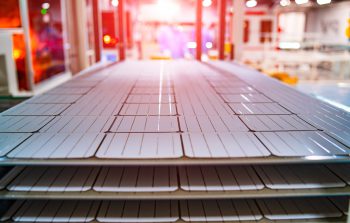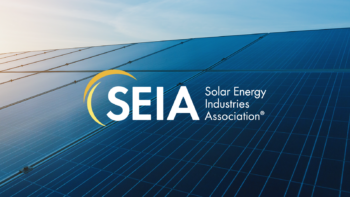Circumvention Petitions: Full of Sound and Fury Signifying Nothing
A group of anonymous companies that are trying to consolidate and limit the U.S. market for solar panels has made false allegations against the Solar Energy Industries Association in their petitions to get the Commerce Department to open an investigation into circumvention of anti-dumping/countervailing duties.
The companies say SEIA is attempting to “unmask” them and that SEIA is “functioning as a Washington, DC-based enforcer for Chinese solar interests.” That would be laughable if it wasn’t so serious. Just the initiation of this case could cost more than $15 billion in investment at a time we need to be adding hundreds of billions of dollars to fight the climate crisis.
The petitioners’ decision to spend valuable time crafting falsehoods about SEIA, tells you everything you need to know about the case they have. The claim that we are running a nefarious campaign to unmask them is untrue. We do think they should identify themselves so we can evaluate their case more fully. We have been upfront about that.
The claim that we are fighting for China also is ridiculous. China has attacked SEIA this year as “restricting and suppressing China and its companies.” Clearly, we are not enforcers of Chinese interests and the petitioners’ words come off as xenophobic.
This petitioners’ practice of throwing spaghetti against the wall is pervasive throughout their filings. We hope Commerce will see through this and reject the petitions now.
Let’s assume we agree that China is a bad actor in matters of trade and forced labor. That fact sheds no light on how companies in Vietnam, Thailand and Malaysia are dumping panels from their countries into the U.S. market at a loss to kill U.S. competition.
Here are the facts.
More than two-thirds of the value of a solar panel comes from the manufacturing and technological processes in Vietnam, Thailand, and Malaysia. The standard for proving that dumping is happening is whether significant and major work is being done in the country or countries accused of circumventing tariffs. The answer to that is yes. The three countries have each invested hundreds of millions if not billions of dollars in solar manufacturing capacity.
We are also strong proponents of American manufacturing and Senator Ossoff’s Solar Energy Manufacturing for America Act. We are committed to building robust American supply chains. It is only through a strong domestic supply chain that we will reach our aspirations for a carbon free power sector.
At an event in Savannah, Ga. with Senator John Ossoff, Energy Secretary Jennifer Granholm was asked about the circumvention tariffs and here was her response: the administration wants “policy in the United States to facilitate the deployment of solar. Our preference is to have the solar made here. We know we don’t have the supply chain here fully up and running right yet. We have Hanwa Q Cells here [in attendance] which is great, but that’s not enough to supply the whole solar supply chain and meet the demand here in the United States.”
If you believe in creating American jobs, the petitioners’ self-interested efforts will do the opposite. Our data shows that in the base case, the solar industry will employ 304,000 Americans in 2023. With circumvention tariffs, the industry will employ 258,000 workers in 2023. If circumvention tariffs are imposed, U.S. manufacturing jobs will fall to 38,000 workers from an expected 53,000 by 2023.
And then there is climate change. Annual emissions avoided with circumvention tariffs will be 164 million metric tons, whereas in the baseline scenario we would avoid 184 million metric tons. That’s 11% lower avoided emissions, and that’s significant if you are trying to get to net-zero emissions in the power sector.
SEIA member companies are committed to tackling the climate crisis, committed to a robust American supply chains and to adding American jobs. SEIA also is committed to ensuring that we are holding China accountable and that there is no forced labor in U.S. solar supply chains. Even with some headwinds, we have an opportunity for unprecedented growth of clean energy and all the benefits that entails.
We respectfully ask the Commerce Department to throw out these meritless petitions and stop the petitioners’ self-interested efforts to halt supply chains and paralyze the American solar industry and its 230,000 U.S. workers. The climate and American workers are depending on it.



